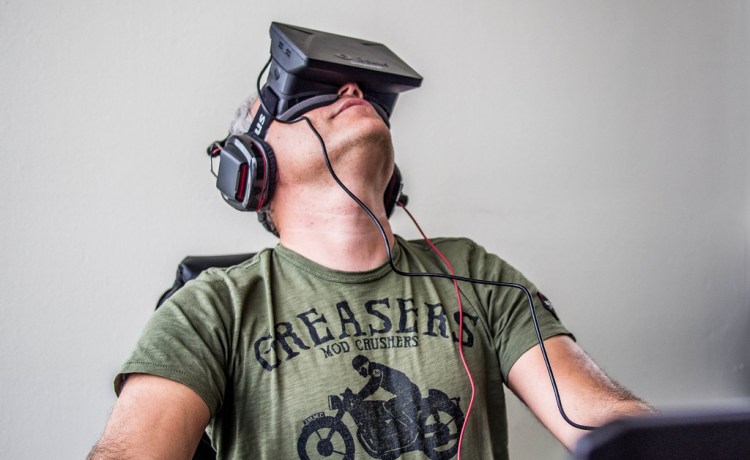Facebook and the future
It’s tough to predict how VR will actually play out. The graveyard for companies that previously attempted VR thought they were on the cusp of a breakthrough with some sort of immersive headset doesn’t have many vacancies left. That’s why it’s easy to imagine any number of sci-fi-inspired eventualities when it comes to Oculus Rift, but the actual reality may turn out pretty tame compared to Demolition Man. At the same time, Facebook just bought Oculus VR for $2 billion in March, and it’s likely that founder and CEO Mark Zuckerberg plans to see this through.
That’s good news for Luckey, but it may mean that we’ll need to come up with solutions for the problems VR will pose us as a species.
“When it comes to virtual entertainment and game developers — and they’re creating online gambling that feels like Vegas, social networking that feels like the best party you were ever at, and pornography that is indistinguishable from sex — how is that going to affect the human condition and the human experience,” asked Bailenson. “Well, I don’t have an answer to that. I know we have to think about it and be very careful about how we regulate it along the way.”
The Stanford professor does have some hope that Zuckerberg will focus Oculus on the positive implications of VR.
“Zuckerberg was the leading philanthropist last year,” said Bailenson. “It’s my hope that this question of what Facebook is going to do with VR is more about how we can use VR to leverage education to make it better — to reduce poverty, to help the environment. A lot of us fly and drive for work, but if I could make meetings compelling in a simulation then we can already start saving fossil fuels.”
With Facebook’s ownership, Oculus has now said it will have the capability to sell the Rift at a very low price point. The social network can afford to lose money on each unit — that’s especially true since it will likely use the platform to serve ads to players, just like it does on Facebook proper.
As for Luckey, he’s focused on shipping a final product. You can suggest any number of potential uses for his invention, but it doesn’t really faze him.
“It’s easy to come up with contrived scenarios where the Rift badly impacts certain people in negative ways, but that’s true of anything — even the most innocent of things,” he said. “Everything in moderation, and like I said, the good is going to outweigh the bad.”
Goetgeluk feels the same way.
“Virtual reality could be an outlet for thoughts you have or frustrations you might experience,” he said. “That might be used as a way to escape reality and be in a different place. It could be very therapeutic.”
Bailenson thinks that people shouldn’t expect virtual reality to act as a catharsis. Instead, he would urge developers to think about how they can use the tech for good.
“I believe virtual experiences change people the same way any experiences change someone,” he said. “You learn from experience, and if we have the choice, then we should try to build content that inspires people to be helpful and conscientious. To be good people.”
As for the future of Oculus VR, Luckey isn’t going to stop once the company releases the consumer version. That’s not even close.
He says that he wants to “solve for everything” when it comes to VR. Yes, that means a head-mounted display, but it also means feedback that feels real when you touch it as well smell.
GamesBeat asked if that meant Oculus VR would eventually start trapping photons in a force field like the holodeck from Star Trek: The Next Generation, and he had a very definitive answer for that.
“Photons are a dead-end,” said Luckey.
But the company is just looking into anything that will make virtual reality better. For now, that primarily means the Rift helmet. In five years, that may take the form of a brain implant that makes you fee like you’re smelling fresh pie and flowers inside a simulation.
Finally, we asked Luckey to look into the future and tell us
“In 20 years — I hope it doesn’t take that long — I hope we have virtual reality that is indistinguishable from real life — at least on the visual side,” said Luckey. “Virtual reality is one of the most important technologies in a long time, and it will be that way for a long time. There’s nothing better we could be doing than waking up to do than VR.”
VentureBeat's mission is to be a digital town square for technical decision-makers to gain knowledge about transformative enterprise technology and transact. Learn More


